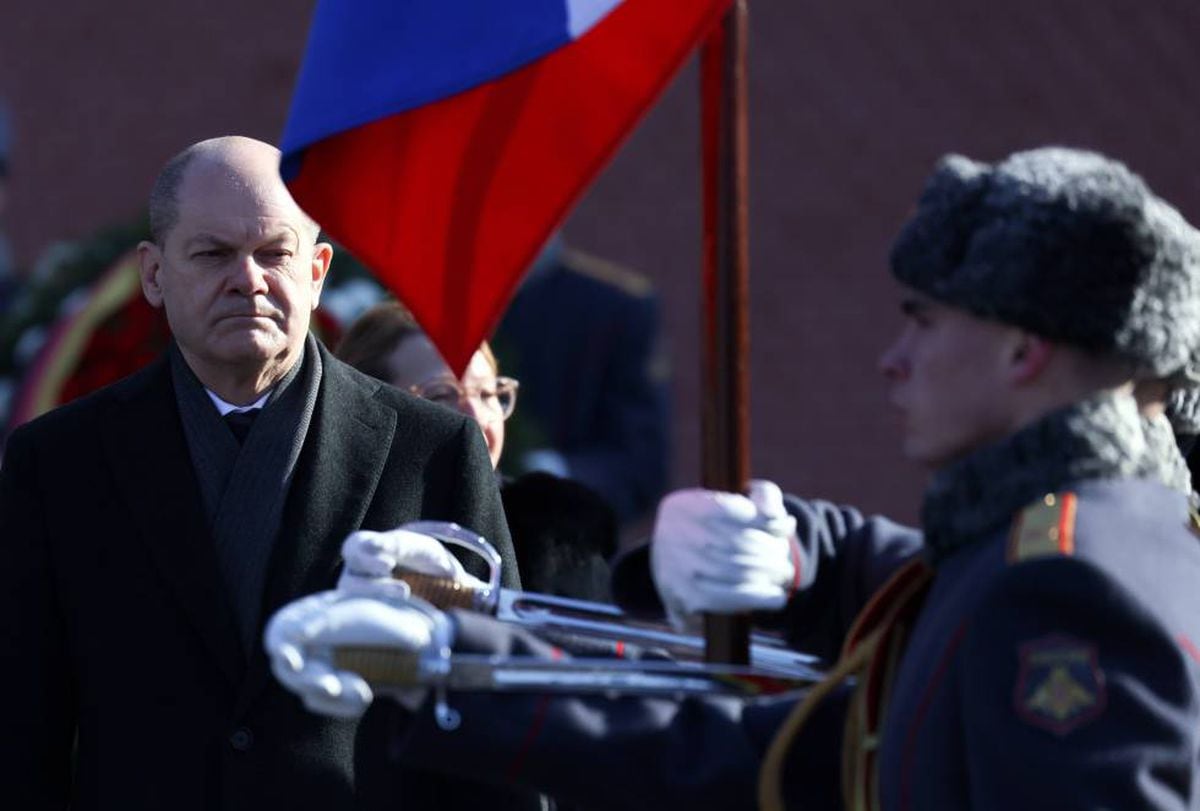The most exciting elections that Germany remembers in many years do not disappoint.
The uncertainty lingers until the end.
The first exit polls point to a technical tie between the two major formations or a slight majority of Olaf Scholz's Social Democratic Party (SPD), which would have obtained around 25% or 26% of the votes, compared to 24%. or 25% of the Christian Democratic Union (CDU), according to the first two estimates of the two public television networks, ARD and ZDF.
The last word will be held by the Greens and the liberals of the FDP, necessary partners to crown both Scholz and Laschet.
It is quite possible that the Germans will go to bed tonight without knowing for sure who will rule the next four years.
More information
Merkel's farewell leaves Germany and the EU facing an unprecedented challenge
The new world disorder disturbs the soul of Germany
The Greens - willing to collude with some and with others, but more inclined to Scholz - obtain around 15%.
It is the best result in its history, but it falls far short of the goal of its candidate Annalena Baerbock, of becoming chancellor.
The Liberals, who clearly pull for Armin Laschet's CDU, would rise a few tenths, up to 11% or 12%.
With these data in hand, still provisional, both Scholz and Laschet could be chancellor.
But whoever comes first should have the first word.
Laschet appeared just 45 minutes after the polls closed. He first thanked Chancellor Angela Merkel for his efforts in 16 years of Government, at his side with slightly red eyes. The long faces were evident among the members of a party that has had the worst results in history. "We cannot be happy with these results," said Laschet, who nonetheless insisted that he will try to form a government.
The chancellor will belong to one of the two mass parties that have starred in German politics since 1949, but greens and liberals will be decisive in deciding which chancellor Germany has.
Mathematically there are several possible tripartites, but the most realistic options are reduced to two: the so-called semaphore coalition (SPD, greens, liberals);
and Jamaica (CDU / CSU, Greens and Liberals).
Everything seems to indicate that the environmentalists and the FDP will have to agree despite their programmatic differences.
Join EL PAÍS now to follow all the news and read without limits
Subscribe here
Germany is looking into very long negotiations. Four years ago, it took Angela Merkel almost half a year to close the third grand coalition in her 16 years of government. The paralysis of the most populous country (some 83 million inhabitants) and with the greatest economic weight in the European Union threatens to leave the European club headless just when important challenges appear on the horizon. The EU must decide on such important issues as when to reinstate fiscal rules so as not to hinder the way out of the crisis or what response it should give to the new international scenario that opens with the crisis in Afghanistan and the Biden Administration's problems with France over the military alliance that Washington has woven with the United Kingdom and Australia.
The SPD achieves a result that no one had anticipated a few months ago. I anticipated months ago. According to the first estimates, it would have risen about five points compared to 2017. And if its slight advantage is confirmed, it is the first time in two decades that it has won the elections. In addition, he would also have won the regional elections held this Sunday in Berlin and the eastern state of Mecklenburg-Western Pomerania has managed to revitalize its campaign in the last month. And it has done so not so much thanks to its acronym as to the candidate, Olaf Scholz, vice chancellor and finance minister of the great coalition that has governed Germany for the last four years. Being by Merkel's side and identifying with her policies and her way of managing, thoughtful and without fanfare, has allowed her to present herself to the electorate as the most
Merkelian
of the candidates. The latest polls showed that if citizens could directly elect the chancellor - they don't, they vote for a party - they would clearly decide for the Social Democrat. Scholz has taken advantage of the mistakes of his competitors. Citizens have also valued his management experience and his long political career.
The blow for the CDU is enormous. The match between Konrad Adenauer and Helmut Kohl fits the worst results in its history. So far her worst figure had been 31% in 1949. With respect to the last elections to which Merkel ran, she has lost eight points. If the results confirm the projections of the polls, the knives are looming in the party accustomed since 2005 to winning all elections under the mantle of Angela Merkel. Armin Laschet has been revealed as a failed candidate. He has failed to convince the country that he was the right man to guarantee stability. And he has also made big mistakes, like the laughs broadcast live when he visited the floods in August. Even on election day it has not stopped slipping. This Sunday,at the electoral college, he exhibited the contents of his ballot before putting it in the ballot box. Instead of folding it so that the content was inward, you could see the crosses it had marked, an image that photographers have quickly captured and disseminated by all the media. With this slip, Laschet has received innumerable criticisms for violating the principle that the vote is secret.
These elections bring a lot of news for the Germans.
It is the first time that the incumbent chancellor has not tried to be reelected.
Never before has the vote been so fragmented, with the two main parties very evenly matched and three others, FDP, Greens and the far-right Alternative for Germany (AfD) within walking distance.
This greater distribution of the votes causes an uncertainty that will probably translate into months of complicated negotiations to form a government.
Angela Merkel will remain acting chancellor throughout the process, which could last into next year.








